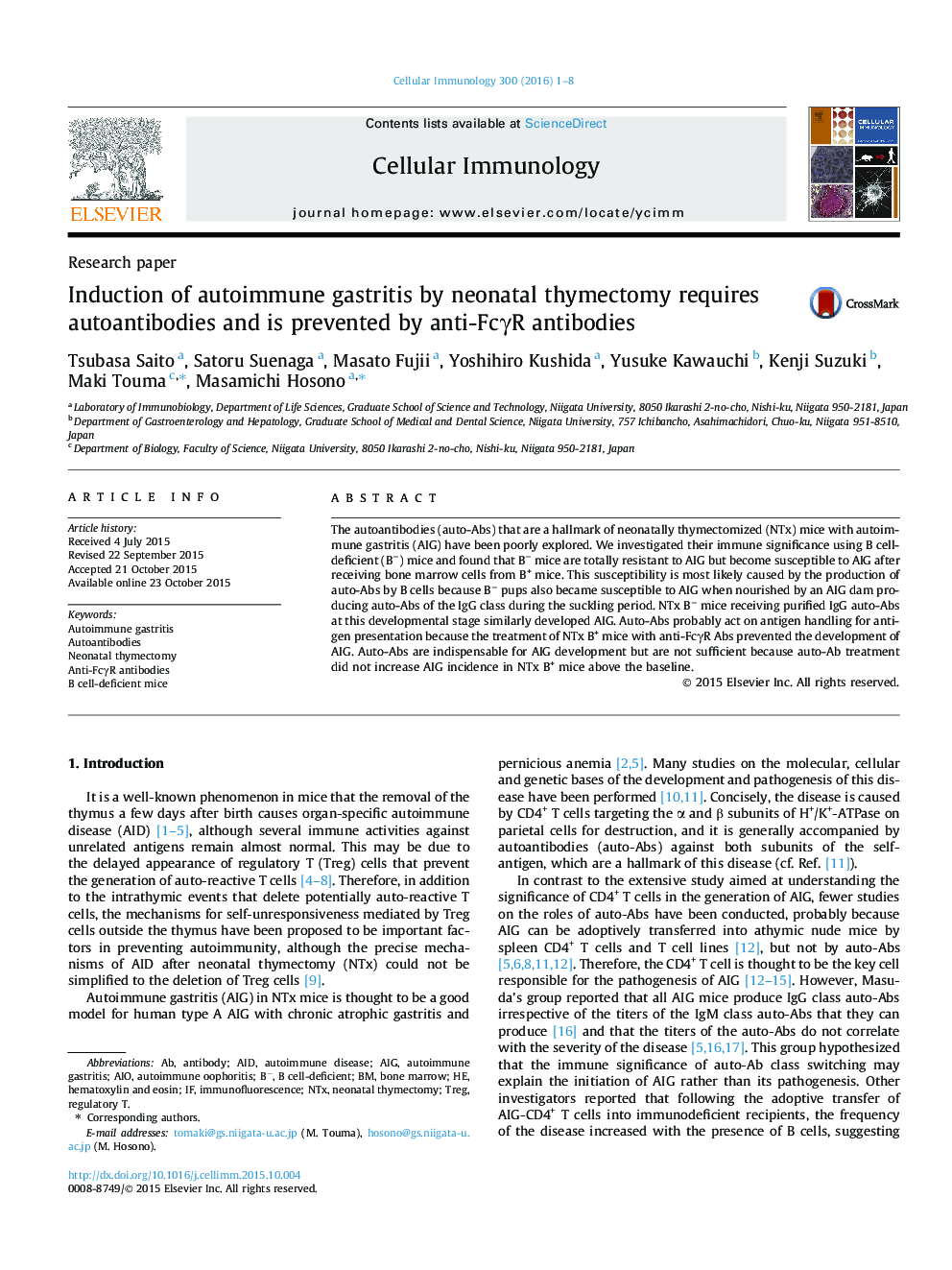| Article ID | Journal | Published Year | Pages | File Type |
|---|---|---|---|---|
| 2166903 | Cellular Immunology | 2016 | 8 Pages |
•B− mice are resistant to the AIG induced by neonatal thymectomy (NTx).•The administration of IgG auto-antibodies (Abs) renders NTx B− pups susceptible to AIG.•The development of AIG in NTx B+ mice is suppressed by the administration of anti-FcγR Abs.
The autoantibodies (auto-Abs) that are a hallmark of neonatally thymectomized (NTx) mice with autoimmune gastritis (AIG) have been poorly explored. We investigated their immune significance using B cell-deficient (B−) mice and found that B− mice are totally resistant to AIG but become susceptible to AIG after receiving bone marrow cells from B+ mice. This susceptibility is most likely caused by the production of auto-Abs by B cells because B− pups also became susceptible to AIG when nourished by an AIG dam producing auto-Abs of the IgG class during the suckling period. NTx B− mice receiving purified IgG auto-Abs at this developmental stage similarly developed AIG. Auto-Abs probably act on antigen handling for antigen presentation because the treatment of NTx B+ mice with anti-FcγR Abs prevented the development of AIG. Auto-Abs are indispensable for AIG development but are not sufficient because auto-Ab treatment did not increase AIG incidence in NTx B+ mice above the baseline.
